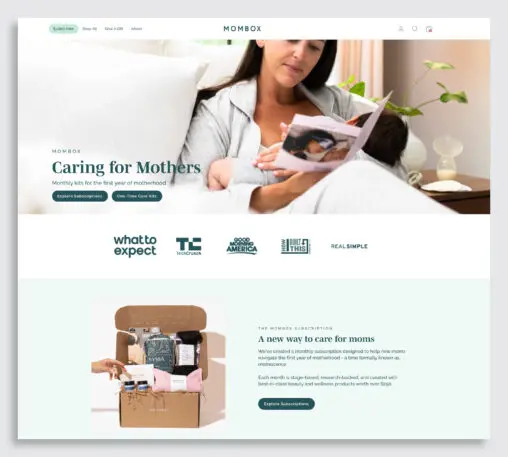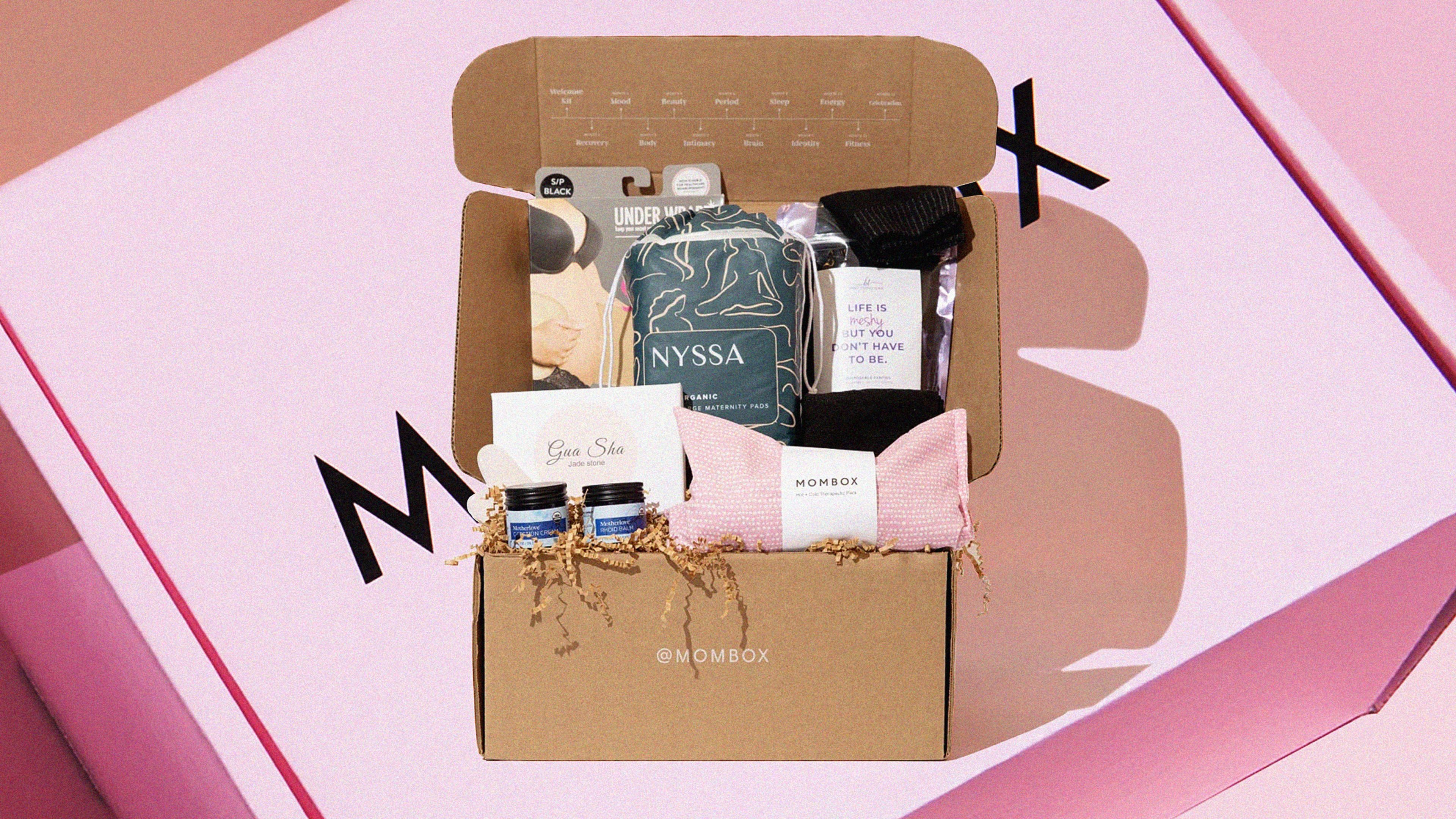When it comes to pregnancy and childbirth, the focus tends to be on the baby’s health. As a result, women don’t often get the support they need, as they experience radical physical and psychological changes during and after delivery. That’s partly why maternal mortality rates have been on the rise in the United States, increasing more than 15% in 2019 alone. And Black women are three times more likely than their white counterparts to die of pregnancy-related causes. Yet, nearly two-thirds of pregnancy-related deaths are preventable.
Four years ago, Kate Westervelt founded a startup called Mombox to give women tools and products that would help them as they recovered from labor and delivery. Now, she’s launching a new subscription kit that gives women science-backed support as they recover in the year after childbirth. Westervelt was inspired by a growing body of academic research about the intense transformation that women experience after giving birth.
Westervelt came up with the concept of Mombox after her own pregnancy, when she noticed that the medical system, and society more broadly, tended to focus on the needs of the baby rather than those of the mother. Companies now sell products like belly bands, which help with C-section recovery, and more comfortable mesh underwear. But products like this are often hard to find and come from a range of small brands. Westervelt’s idea was to scour the market for labor and delivery products and test and curate them, in order to spare women the time and effort required to do it themselves.
But Westervelt realized that a woman’s recovery from pregnancy takes far longer than her hospital stay or even the few weeks after she’s home with her newborn. “It’s a misconception that maternal mortality refers to dying during childbirth,” she says. “When a woman dies within a year of giving birth, that is counted toward the maternal mortality rate. And yet, women get hardly any support during this first year, besides a final checkup with their OBGYN six weeks after delivering.”

Each box contains educational materials to help new mothers identify what’s considered “normal” and what might need medical attention. They also can include wellness and fitness products for help with common issues, such as the separation of abdominal muscles or weakening of the pelvic floor. Westervelt worked with a panel of researchers and practitioners to develop this content and curate products, including lactation consultants and perinatal physical therapists. And when possible, she sources products from small businesses owned by women and people of color. “Our priority is picking the best products on the market,” says Westervelt. “We’re also helping to support brands that specialize in creating these products by connecting with the women who need them.”
As she was developing these boxes, Westervelt was influenced by the research on “matrescence,” an anthropological term that refers to how a woman’s identity changes when she becomes a mother. It was coined in the 1970s by medical anthropologist Dana Raphael, but never really became widely known in mainstream culture. Over the last decade, Aurélie Athan, a reproductive psychologist at Columbia University, has been working to bring it back into the public consciousness. “It’s a concept that has parallels in adolescence, which is something that is widely understood in our culture,” says Westervelt. “We accept that when a child becomes an adult, their bodies change but so does their entire relationship to the world, and it’s a process of transformation that takes years. The same is actually true when a person gives birth. And yet we don’t seem to recognize that.”
In some ways, it’s not particularly surprising that matrescence hasn’t been rigorously studied. Researchers have documented a persistent gender bias in health care, in which doctors don’t treat women’s pain as seriously as men’s, and women’s health issues aren’t researched as thoroughly as men’s—including how pregnant women would respond to the COVID-19 vaccine. But Athan says things are slowly beginning to change. “There’s been growing awareness about postpartum depression and maternal mental health screening,” she says. “Then there was the #MeToo movement, where women insisted that people take their voices seriously.”
Athan believes that simply educating women—and society—about matrescence can be an important first step toward helping new mothers through this transition. “So much of the discourse about new mothers is about how they can bounce back physically or ‘return’ to work,” she says. “The concept of matrescence is that you don’t ever go back to who you were before. But with the right tools, women can adapt to their new identities and lives.”
And that’s become Westervelt’s goal as she’s developed these monthly offerings. In addition to addressing women’s physical health, the boxes include resources to help mothers negotiate tricky things like reestablishing sexual intimacy with their partner and understanding postpartum brain shifts as they return to work. “The goal is to empower new moms with the research, so they can take control of their lives after they have a baby,” she says. “They might not be able to return to who they were before, but with support, their new lives could be even better.”
Recognize your brand’s excellence by applying to this year’s Brands That Matter Awards before the early-rate deadline, May 3.
